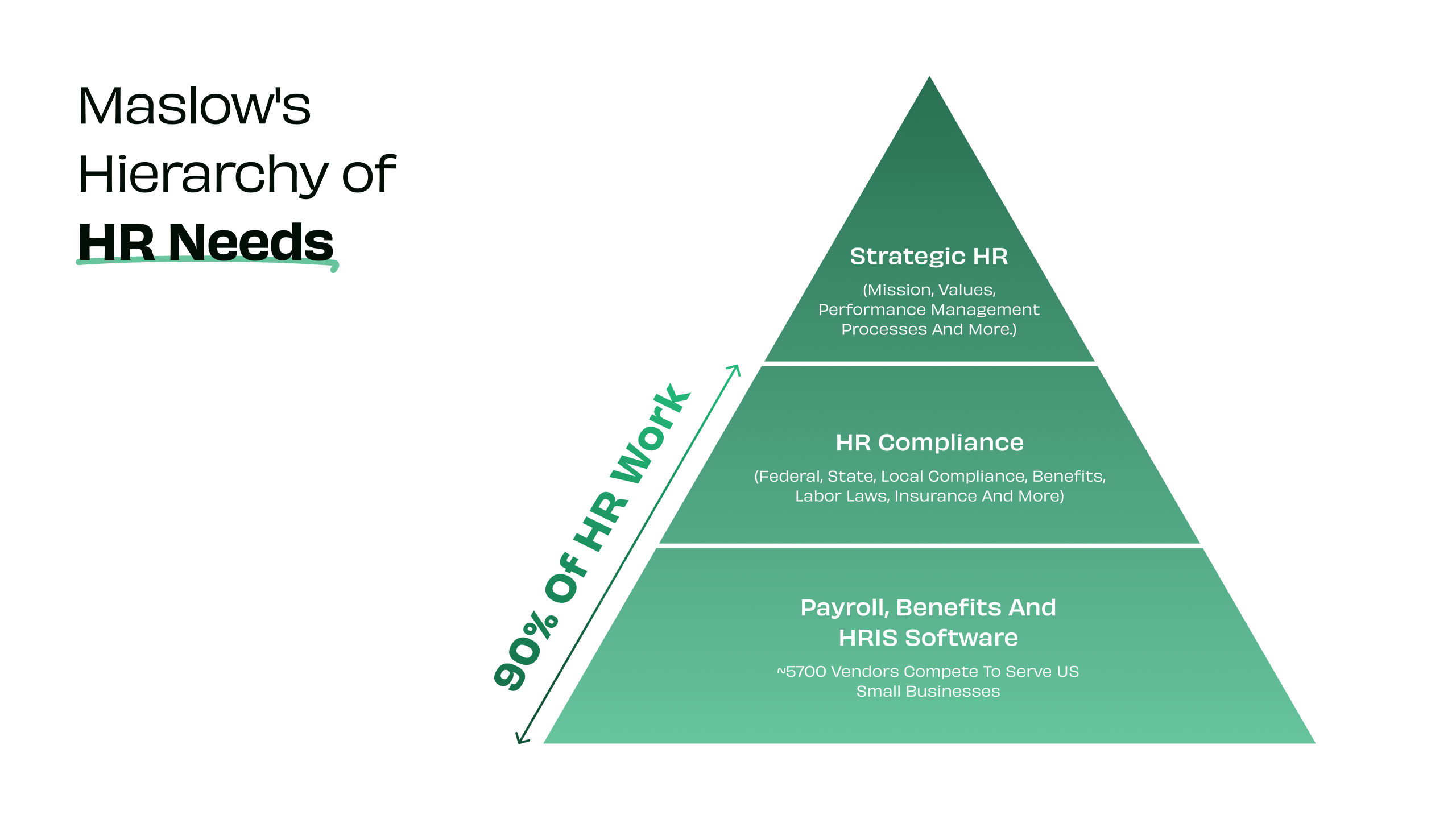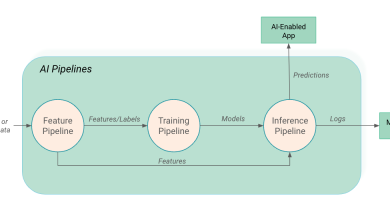Most people have heard of Maslow’s Hierarchy of Needs – a psychological theory on the five basic needs of humans, often depicted as a pyramid, with physiological needs like food and shelter at the bottom, and the ultimate goal of self-actualization at the top. Maslow’s position was that one could only proceed up the pyramid after completing earlier levels.
After more than a decade working in HR tech for small businesses and startups, I’ve come to realize that HR follows a similar hierarchy. There’s a clear progression – from the foundational, must-have systems that every startup needs to function, to the aspirational level of strategic HR that drives engagement, culture and long-term growth.
The three layers of the pyramid in this scenario are:
Payroll, Benefits and HRIS software (the basics). This is the HR equivalent of food and shelter. If your startup has even one employee, you need a reliable way to pay them, manage benefits, and track HR data. While some early-stage companies attempt to do this manually, very few continue for long – mistakes here are not just time-consuming, they’re expensive and morale-draining.
Compliance Management (safety & security). This is the next critical level. Staying compliant with federal, state and local labor laws is a moving target – especially for companies operating in multiple jurisdictions. From state registrations and leave tracking to wage laws and employee classification, getting it wrong can result in steep fines and legal exposure. Doing this manually isn’t just inefficient – it’s risky.
Strategic HR (self-actualization). At the top of the pyramid is strategic HR – the most aspirational (and most impactful) level. This is where HR aligns with company values and business goals. Performance management, employee engagement, DEI and professional development become central to your growth strategy. Strategic HR helps turn your startup into an employer of choice.
But the truth is, most startups never reach this stage – not because they don’t care, but because they’re bogged down in the foundational tasks. Founders are often in firefighting mode, reacting to immediate needs rather than planning ahead.
At startups, about 90 percent of HR work falls into the lower two levels of the pyramid. These are ripe for AI automation.
Founders Don’t Want to Spend Time on HR
In my experience, startup founders would rather do almost anything else than deal with HR. It’s not coding. It’s not closing deals. It’s not core to the product. Chasing compliance deadlines and fixing payroll errors often feel like distractions – until they become emergencies.
Some startups do have an internal team member handling payroll and compliance, but many choose to outsource to one of the 54,000 HR consultants in the U.S. However, with limited budgets, most of their spending covers the bare minimum – leaving little room for strategic investment in people and culture.
AI Is Changing Everything
Software has automated much of the bottom and middle layers in the form of 5,700 pieces of software. But managing that software and related vendors is work that someone has to do. It’s a cognitive load.
That’s now beginning to shift. You can now use AI to manage your different software, which can connect systems that don’t talk well to each other. This enables startups to spend less time and money on administrative HR tasks, and more on high-value, strategic work.
Today, AI can already autonomously manage complex HR workflows such as:
-
Onboarding and offboarding
-
Compliance and audits
-
Tier 1 & 2 employee requests for HR
There is much more AI automation to come.
If your startup is currently outsourcing HR admin to a consultant, it may be time to rethink that model. AI is rapidly closing the gap between manual work and automation. In the next few years, many traditional consultancies may disappear – unless they evolve to leverage AI for automation while providing strategic guidance that software alone can’t deliver.
That’s where the real value will be. And that’s how startups will finally make it to the top of the HR pyramid – faster, leaner and smarter than ever before.
Upeka Bee is the founder and CEO of DianaHR, which offers the first AI-powered HR-as-a-Service platform for SMBs.





